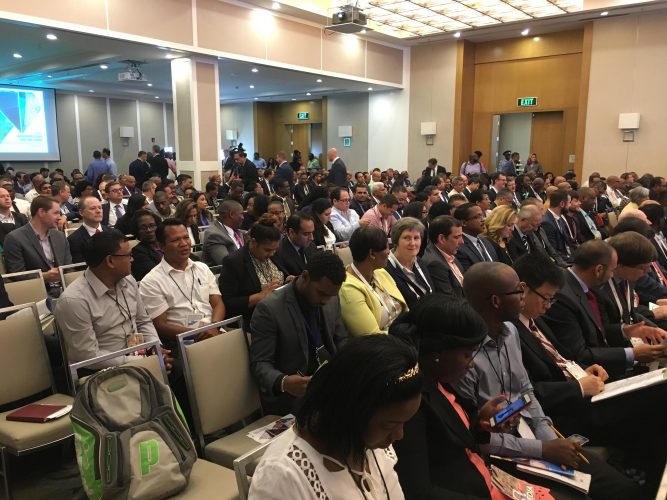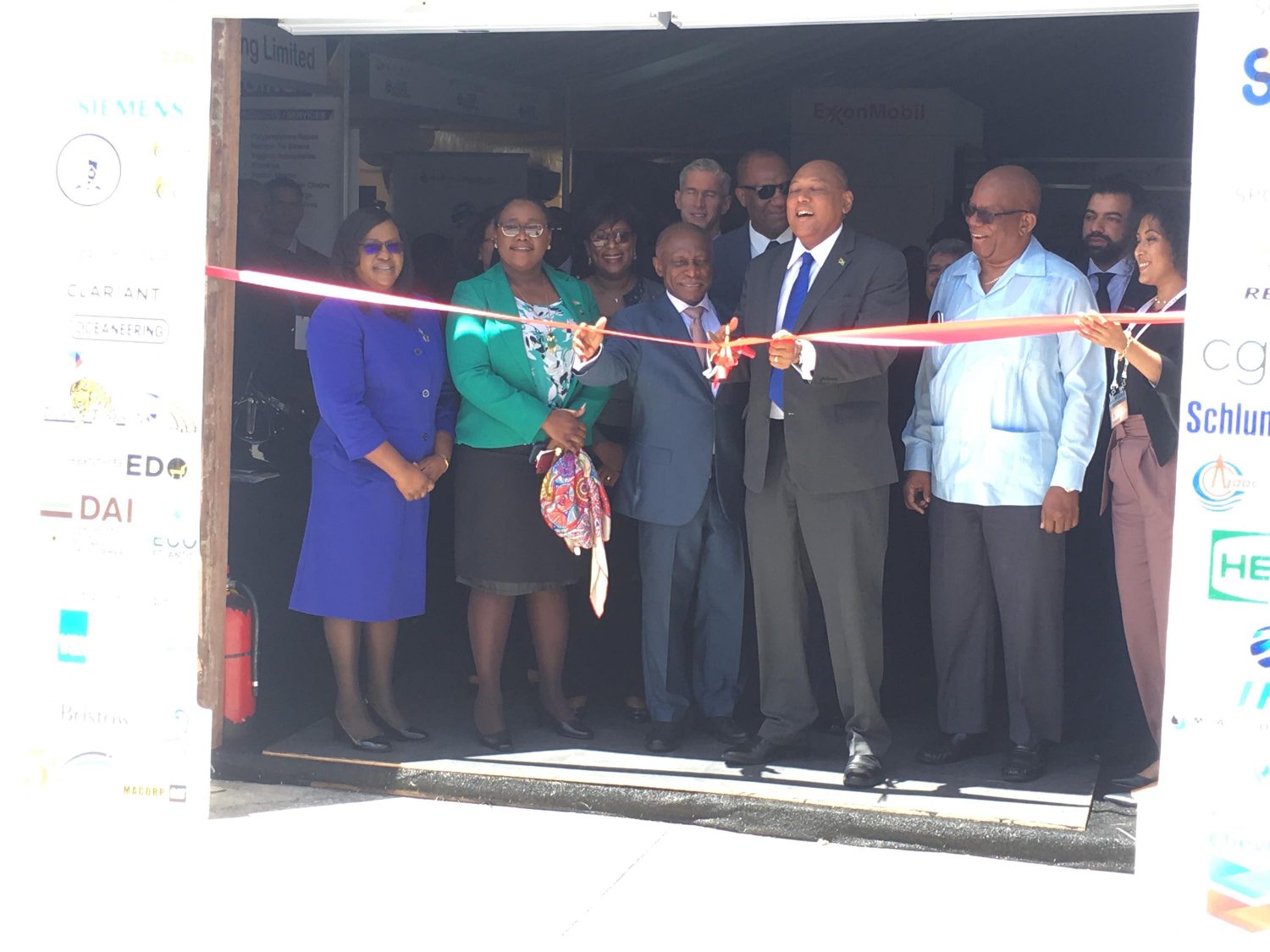A major oil conference got underway yesterday with ExxonMobil playing up the economic growth that Guyana will see from its offshore operations but the intended main speaker, President David Granger did not appear as he was said to have been “unavoidably detained”.
Amidst dozens of oil companies and suppliers and notables including the former premier of Alberta, Canada, Alison Redford, Vice President of ExxonMobil Development Company, Lisa Waters, said that Guyana will be helping to fuel global economic growth around as a result of the company’s oil discoveries in the offshore Stabroek Block
Hundreds of delegates and representatives from international and regional companies from all parts of the world gathered yesterday morning at the Marriott Hotel as the Guyana International Petroleum Business Summit and Exhibition (GIPEX) was officially launched.
Addressing the gathering, Waters stressed that affordable and reliable energy leads to meaningful change in peoples’ lives and also positively influences the growth of the middle class, which is expected to increase to five billion people by 2040, and will result in a projected 25 percent increase in energy demand.
“The emerging petroleum energy here in Guyana can be a proud part of the solution to meeting the growing demand for energy. Not only will the oil and gas development here bring many benefits to the people of Guyana, but Guyana will be helping to fuel the economic growth around the world,” Waters said.

The ExxonMobil executive pointed out that the oil and gas industry helps to improve the living standards collectively, and could only have been possible with the technology and partnerships which are established and developed. Waters stated that currently, some one billion people live without electricity and about three billion do not have modern fuels for cooking, which results in millions of deaths per year and can have other health impacts which lead to shorter lifespans for people.
“Increasing access to affordable energy, reliable energy, leads to meaningful change to people,” she stated, while adding that economic growth and energy use are correlated, as energy needs are a function of populations and living standards. She noted that the human development index measurement of quality of life indicates that if energy use is compared to quality of life, it can be seen that as energy use increases, human development is enabled.
“Our industry plays an important role in fulfilling these aspirations for billions of people. One of the triumphs of the past quarter century has been the dramatic increase of living standards. The UN [United Nations] estimates that since 1990, one billion people have escaped extreme poverty and every year, 160 million people are joining the global middle class. We all know the access to energy improves living standards; clean cooking fuel improves air quality and saves lives. Reliable lighting makes for long, safer and more productive days.
Delivering the feature address at the event, Minister of Natural Resources, Raphael Trotman also highlighted the importance of the development of Guyana’s oil and gas industry, and observed that although the beginning may seem “rocky and uncertain… we are off to a good and predictable start.” He charged that the country should not be “simply known as an oil producing nation” but rather as a country that took its natural resources and revenues and used them to fashion and carve a nation that is geographically and strategically positioned to produce the food that will be required for the 48 million people who are projected to be living in the Caribbean by 2050.
Trotman, who has been heavily criticised over the deal struck with ExxonMobil, also charged the local entrepreneurs “to be prepared for a level of investment and hive of business activity that is unprecedented.” He said that they should upgrade their skills and knowledge, improve the standards of their business, form alliances and partnerships and “to get ready to compete with the best for they are already here at our door step.”
Trotman also noted that the aim of the Government is to see that the country becomes the gateway in and out of South America.
“Our current construct sees us entered into 50-50 partnerships with all of these companies. Fifty percent of the net profits of four plus billion barrels of oil, recoverable is an almost incalculable amount in Guyanese dollars, all of this is what is going to come to the people of Guyana in the not so distant future. Left untapped this …will leave us with zero,” Trotman added, while highlighting the numerous spin-off benefits and other sectors that will grow as a result of the oil and gas industry.
Patricia Bacchus, chair of the Board of Directors of Go-Invest, also made brief remarks. She encouraged the investors and companies to view the gaps in the economy not as shortcomings but as economic opportunities.
“GIPEX provides a forum through which the emerging oil and gas sector can be carefully explored and it is critical to the development of meaningful sector and cross-sector relationships,” she added.
Chairman of the Private Sector Commission, Eddie Boyer also made brief remarks, along with Minister of Foreign Affairs Carl Greenidge and Minister of Public Telecommunications Cathy Hughes.
After the opening ceremony concluded, the ribbon was cut and delegates toured a number of booths on display. The conference continues today and concludes tomorrow.








